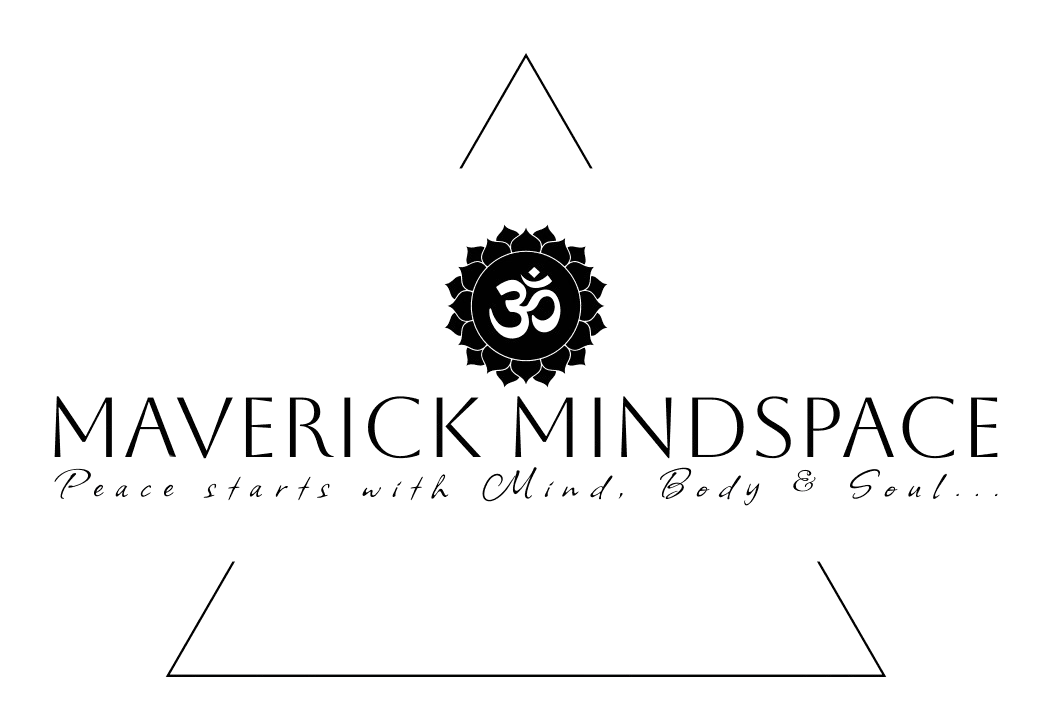✨ Signs You Are Losing Yourself: When You Wake Up and Don’t Recognize Who You Are
Search for everything except love and death; they will find you when the time comes.
It hits you subtly: you realise the signs you are losing yourself. You wake up and no longer recognise the person in the mirror. It usually begins quietly under your nose, which you fail to notice. Not by crashing into anything or falling in a play, but by being calm. Cleaning your teeth is a way to keep your mouth clean. Looking through your phone. Lying down in bed. You just live your life like it is passing by, but from inside you are suffering from things unexplainable, and only you can understand that.
It hits you hard but subtly: I don’t know who I am anymore.
You keep going and keep up with your day-to-day schedule. You could be smiling, laughing, and doing all the things that show everything is normal. But there is a deep weight under the eyes; only those who can read those will get to know.
A longing that can’t be put into words. You start to realize that you’ve been slowly fading away, not all at once, but in little, hard-to-notice ways. A passion that has been left behind. A perspective that has been repressed. An inclination to agree even when you don’t want to.
I was the one at fault. I didn’t break apart all at once. I slowly disappeared. One day, I looked in the mirror and saw someone I didn’t know in my own life. It felt like time travel into the unknown, but somehow your heart knows deep inside what is lying beneath your world of pain.
But that moment, that realization, wasn’t the end. It was the beginning. The first step in coming back is realizing that you are gone before you can read those signs that you are losing yourself.
The events that follow do not represent a major change. It is a quiet reconstruction. One breath at a time. One choice. A single truth.
You are not broken if you have felt this anguish, this slow breakdown. You are not weak. You are merely being called home.
This blog tells the story of my experience, but it is also yours. A guide to help you recognize the signs you are losing yourself, accept your feelings, and start the long, deep journey of finding your real self again. This blog is more than just an observation. It is a guide to finding yourself, a journey through the mind’s psychology and the soul’s discoveries.
You can read this on Mental Burnout – American Psychological Association – What is Burnout?
👉 https://www.apa.org/news/press/releases/stress/2020/report
Table of Contents
🧠Science-Backed Signs You Are Losing Yourself (And Why It Happens)
The phenomenon termed “losing ourselves” is not vague nor metaphorical; it is concrete and measurable. Emotional weariness may slowly break down our sense of who we are, our drive, and our physical balance.
1. Chronic Stress and Cortisol Dysregulation
When you are under a lot of stress for a long time, your adrenal glands keep releasing cortisol into your blood. This constant surge of cortisol makes the prefrontal cortex, which is the brain’s executive decision-making region, less effective, so that it creates emotional exhaustion.
It also makes the amygdala, which is the emotional danger area, more powerful. You become emotionally unstable, mentally handicapped, and spiritually tired.
Over time, you stop making your own decisions and start reacting to what’s going on around you. It makes our brain psychologically fatigued. Your restrictions break down. Our objective becomes smaller. Gradually, the weight of staying alive makes it hard to know who we are.
2. Default Mode Network Disruption
The Default Mode Network (DMN) regulates self-reflection, recollections of one’s own life, and the formation of one’s own identity. It works when you’re not paying attention to what’s going on around you, such as when you’re daydreaming, thinking about your life, or simply being alone.
Trauma or burnout may make the DMN either too active, which can produce rumination and self-doubt, or too inactive, which can create detachment and numbness.
This detachment might make you feel like you’re watching your life unfold instead of being the main character.
3. Emotional Numbing and Anhedonia
Anhedonia is when you lose interest in or the pleasure of things that used to make you happy. It’s not because they are lazy or don’t want to succeed.
It is a neurobiological sign of emotional exhaustion. The dopamine system, which controls reward and motivation, becomes weaker. You stop looking for happiness when your mind stops expecting it, and you will get the clear signs you are losing yourself.
⚠️ 10 Clear Signs You Are Losing Yourself (Emotional + Scientific)
Let’s look at the signs that you are losing yourself and slowly letting go of your core identity, which started impacting your mental health:
1. You Feel Constantly Exhausted, Even After Rest
This is a sign that your adrenal glands are becoming too tired. Sleep doesn’t help when the nervous system is stuck in fight-or-flight mode. You wake up tired and carry that weight all day. You are unable to reconnect with yourself.
2. You Struggle to Make Simple Decisions
Making decisions about food and how to talk to others is hard. Being tired of making decisions shows that you don’t trust yourself since you’re not sure who you are.
3. You Say “Yes” to Everything to Avoid Conflict
You agree to do things you don’t want to do only to keep the peace. You put the fear of letting other people down ahead of the fear of betraying yourself. This slowly lowers your self-respect and makes you emotionally exhausted.
4. You Feel Disconnected from Joy
The joy you used to have when creating, laughing, and exploring has faded. Your activities may still happen, but they appear to be automatic. This is a classic sign of tiredness and suppressed feelings, which makes you vulnerable.
5. Your Days Blur Together in Monotony
You can’t remember what day it is. Weeks go by without any emotional highs. This repetitive rhythm is typically a sign of a lack of originality and purpose.
6. You Can’t Remember What You Used to Love
Think about what made you excited as a youngster. This divide shows that your inner self is becoming worse if you are not feeling inspired or are ignoring the matter.
7. You’re Always in Survival Mode
Your body stays tense even when things are calm. You can’t sleep because part of you is continuously getting ready for impact. This continual watchfulness makes it hard for you to relax, think, or have fun. This leads to psychological instability.
8. You Feel Unseen in Close Relationships
You keep your thoughts to yourself. You downplay your sentiments. You laugh on cue. But you feel invisible on the inside. The difference between how you feel inside and how you act on the outside is too much to bear.
9. Your Inner Voice Is Constantly Critical
When you speak to yourself, you start to blame, humiliate, and feel like you’re not good enough. You critique yourself before anyone else can. This internalised assessment hurts your self-esteem.
10. You Crave Solitude Yet Feel Lonely in Crowds
You want to be alone so you can stop pretending. But even when you’re alone, you still feel alone. This inconsistency demonstrates emotional fragmentation and unresolved trauma, which is not good for your mental health.
These are real, emotional, and scientific signs you are losing yourself.
💔 My Story: Losing Myself & How I Found the Signs
Are you sad? “The Mirror That Didn’t Show My Face” is my story.
It never starts with thunder.
Losing oneself typically begins in quiet, when no one is paying attention.
You come in every day. You perform your job. You grin when you talk. You do the same things every day, but one day something seems off. Not incorrect, just different. It’s almost like you’re on autopilot. You don’t care about your mental health.
You look in the mirror one morning while brushing your teeth or looking through your phone, and see that something is missing. The brightness in your eyes. The spark in your chuckle. The peaceful confidence that you know who you are. Your body is there, but your mind seems to have gone somewhere else. You feel emotionally exhausted, but not in a way that sleep can help. It’s the deep-down tiredness that comes with being emotionally disconnected.
You could think:
“I might just need some rest.”
But you know it’s not simply being weary. It is slowly coming apart.
There isn’t a big breakdown. Not a big epiphany. Just a gradual fading.
That’s how it frequently feels to lose yourself:
A calm detachment from who you are.
A loss of happiness.
A life that doesn’t have your name on it.
But the fact is that treatment or a breakthrough doesn’t necessarily start the healing process.
It may start with only one breath.
A moment of silence. A note written by hand. A stroll in the sun. An afternoon without your phone that is quiet. These little things start to speak to the person you left behind.
And so, little by little…
You start to come back.
You start writing again, not to get things done, but to figure things out.
You meditate not to be flawless, but to bond.
You make a daily tracker so you can see yourself, not to reach targets.
You read, breathe deeply, and enjoy the quiet.
You sit in the sun not to get a tan, but to warm your heart.
We start to remember via these little, deliberate actions:
We are not lost.
We are simply lost in too much noise.
And that part of you that feels like home is still there.
Waiting. Looking. I’m ready to come back when you are.
🛠️ How to Reconnect With Yourself: 8 Research-Backed Tools
Tools based on science to help you reconnect with yourself.
Healing begins with awareness. If you resonate with the signs you are losing yourself or losing who you are slowly, here’s how to begin:
You don’t have to make big changes to heal. It takes persistent effort. Here are some useful, research-based ways to help you go back to yourself:
1. Conscious Breathing (3–5 Minutes)
The 4-7-8 technique says to breathe in for 4 seconds, hold it for 7 seconds, and then breathe out for 8 seconds.
Lowers blood pressure, eases anxiety, and turns on the parasympathetic nervous system.
Find this- 🌬️ Top 10 Breathing Exercises to Calm the Mind | Unlock Inner Peace Naturally
2. Grounding Yoga or Mindful Movement
Yin yoga and restorative postures help keep the vagus nerve in check.
Brings the mind and body back together, which helps with dissociation symptoms.
3. Journaling for Clarity
Don’t use a filter while you write. Writing in a stream-of-consciousness style helps you understand your feelings better.
Try asking yourself, “What do I miss about myself?” “What would I do today if I had complete faith in myself?”
4. Create Boundaries Based on Energy
Listen to what your body is telling you. It’s alright to say no if a request seems burdensome.
Keep in mind that setting healthy limits is a way to appreciate yourself.
5. Reignite a Forgotten Passion
Do something artistic or a pastime you used to do as a kid again.
Research indicates that imaginative play enhances emotional control and fortifies resilience.
6. Digital Detox Practices
Make rules on how much time you may spend in front of a screen.
Instead of looking through your phone at night, try doing things like writing, doing puzzles, or taking calm walks.
Find more here – 4 Brilliant Ways to Productively Use Your Screen Time for Mental Wellness
7. Seek Therapy with a Holistic Focus
Find therapists who know how to help those who have been through trauma, use Internal Family Systems (IFS), or use somatic therapy.
8. Micro-Rituals to Anchor Your Day
Making tea with a purpose, for example. Seeing the sun come up. Reading poems out loud.
These routines work on the brain’s reward pathways and help people feel comfortable inside again.
📘 FAQs: Understanding Identity Loss and the Path Back to Rediscovering Yourself
Q1: Is this feeling of “losing myself” a mental illness?
Ans: Not always. It’s a symptom that your emotions are out of whack or you’re burned out. But it may happen with things like depression or trauma, which need to be treated by a specialist.
Q2: Can I reconnect with myself without quitting my job or moving away?
Ans: Yes. Healing isn’t about running away. It’s about making things fit together, no matter where you are. You may start by taking back little decisions, moments, and facts.
Q3: How do I know if it’s burnout or just fatigue?
Ans: Burnout is when you feel emotionally drained, cynical, and less accomplished. If rest doesn’t help, it’s probably more than just being tired.
Q4: How long will it take to feel like myself again?
Ans: Healing is a personal thing. It might take weeks, months, or even longer. The most important thing is to be present, not flawless.
📜 Quotes to Carry With You
“And suddenly you know: it’s time to start something new and trust the magic of beginnings.” – Meister Eckhart
“You don’t have to see the whole staircase, just take the first step.” – Martin Luther King Jr.
“Healing doesn’t mean the damage never existed. It means the damage no longer controls your life.” – Akshay Dubey
🎯 Final Thoughts: You’re Not Broken, You’re Becoming
Losing yourself doesn’t mean you failed. It means you adapted to survive. It means you gave too much, held too much, and carried too much—and somewhere in the process, you forgot that you matter too.
But this is the beauty of awareness: once you notice the distance, you can begin to close it. Healing doesn’t mean fixing everything. It means coming back—slowly, gently, courageously.
Start with breath. With rest. Telling the truth when you’ve been pretending for too long. Begin with one moment that’s just yours.
“Coming back to yourself is not a grand arrival. It’s a soft remembering.”
You’re not broken. You’re becoming.
You’re unfolding.
Every step you take to honor your truth brings you home.
With calmness,
Maverick
@maverickmindspace


9 Best Foods That Help You Sleep Naturally—Backed by Science & Real Stories
Discover the top science-backed foods that help you sleep better. Improve your sleep naturally with simple dietary changes and feel well-rested again.

10 Emotional and Scientific Signs You are Losing Yourself (And How to Begin Healing)
Feeling like a stranger in your own life? Discover 10 emotional and scientific signs you are losing yourself—and the tools to come home again.

4 Brilliant Ways to Productively Use Your Screen Time for Mental Wellness
Learn how to productively use your screen time to boost mental clarity, reduce anxiety, and improve digital wellness. Includes tracker + real story.

7 Powerful Ways Running Improves Mental Health (Backed by Science)
Discover how running improves mental health with 7 science-backed benefits and a real-life journey of healing, clarity, and purpose.

How Stress and Premature Grey Hair Are Linked: 7 Shocking Facts
Discover ways stress and premature grey hair are related and what you can do to reverse it. Learn science-backed tips to protect your hair and mental health.

40 Uplifting Quotes to Ease Anxiety and Calm an Overthinking Mind
Discover 40 calming anxiety quotes to ease anxiety. Feel grounded, supported, and peaceful when you’re overwhelmed. Perfect for your mental health journey.

